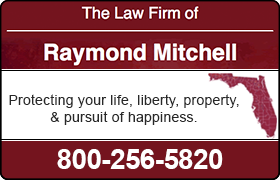El Jobean Workout Lawyer, Florida
Sponsored Law Firm
-
 x
x

Click For More Info:
-
The Law Firm of Raymond Mitchell
3717 Del Prado Blvd. South Cape Coral, Florida 33904 » view mapLee County Bankruptcy Lawyer We Help You Survive Financial Attacks
We strive to protect your freedom and rights and provide high quality legal services to you in a professional, respectful, realistic and honest manner.
800-256-5820  Raymond B. Mitchell Cape Coral
Raymond B. Mitchell Cape CoralAttorney At Law - FL, 1994
Regent University School of Law - 1993
 Chapter 7Liquidation
Chapter 7LiquidationA Chapter 7 liquidation proceeding is available to individuals, partnerships, and corporations.
 Chapter 13Reorganization
Chapter 13ReorganizationA Chapter 13 bankruptcy, or "wage earner reorganization" is available only to individuals with regular income.
Not enough matches for El Jobean Workout lawyer.
Below are all El Jobean Bankruptcy & Debt lawyers.
Joseph Aloysius Heintz
Litigation, Bankruptcy, Personal Injury
Status: In Good Standing Licensed: 24 Years
Cord C. Mellor
Divorce, Child Support, Elder Law, Dissolution
Status: In Good Standing Licensed: 49 Years
Douglas W Grissinger
Alimony & Spousal Support, Child Support, Dissolution, Divorce
Status: In Good Standing


 Raymond B. Mitchell Cape Coral
Raymond B. Mitchell Cape Coral Chapter 7Liquidation
Chapter 7Liquidation
